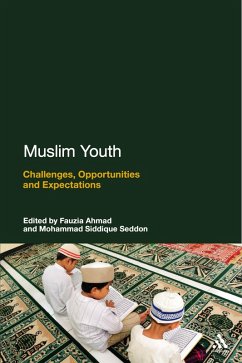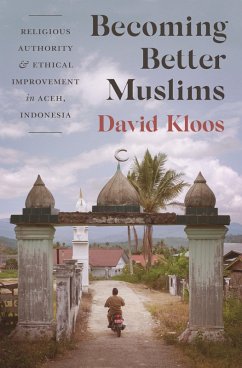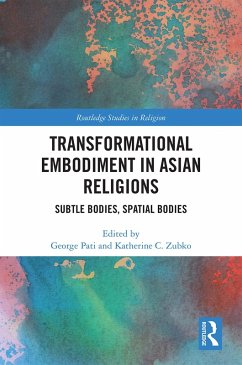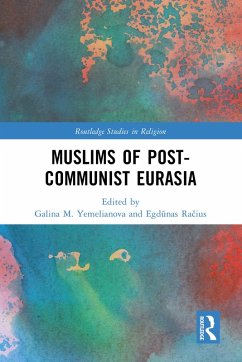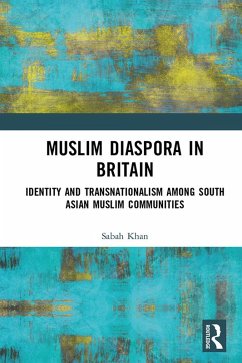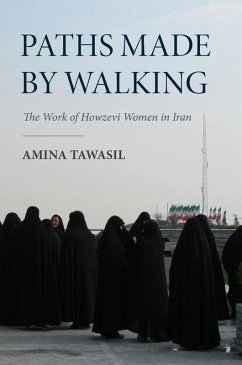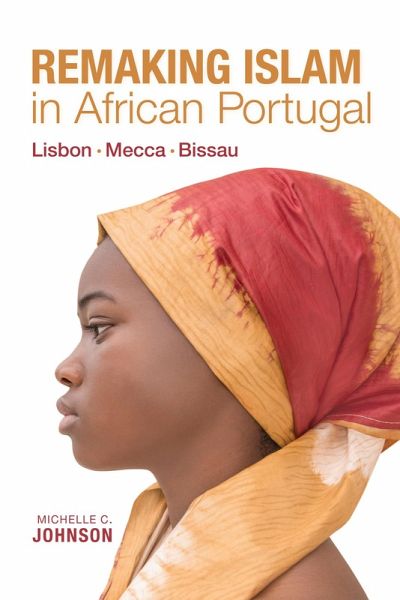
Remaking Islam in African Portugal (eBook, ePUB)
Lisbon-Mecca-Bissau
Versandkostenfrei!
Sofort per Download lieferbar
18,95 €
inkl. MwSt.
Weitere Ausgaben:

PAYBACK Punkte
9 °P sammeln!
When Guinean Muslims leave their homeland, they encounter radically new versions of Islam and new approaches to religion more generally. In Remaking Islam in African Portugal, Michelle C. Johnson explores the religious lives of these migrants in the context of diaspora. Since Islam arrived in West Africa centuries ago, Muslims in this region have long conflated ethnicity and Islam, such that to be Mandinga or Fula is also to be Muslim. But as they increasingly encounter Muslims not from Africa, as well as other ways of being Muslim, they must question and revise their understanding of "proper"...
When Guinean Muslims leave their homeland, they encounter radically new versions of Islam and new approaches to religion more generally. In Remaking Islam in African Portugal, Michelle C. Johnson explores the religious lives of these migrants in the context of diaspora. Since Islam arrived in West Africa centuries ago, Muslims in this region have long conflated ethnicity and Islam, such that to be Mandinga or Fula is also to be Muslim. But as they increasingly encounter Muslims not from Africa, as well as other ways of being Muslim, they must question and revise their understanding of "proper" Muslim belief and practice. Many men, in particular, begin to separate African custom from global Islam. Johnson maintains that this cultural intersection is highly gendered as she shows how Guinean Muslim men in Lisbon-especially those who can read Arabic, have made the pilgrimage to Mecca, and attend Friday prayer at Lisbon's central mosque-aspire to be cosmopolitan Muslims. By contrast, Guinean women-many of whom never studied the Qur'an, do not read Arabic, and feel excluded from the mosque-remain more comfortably rooted in African custom. In response, these women have created a "culture club" as an alternative Muslim space where they can celebrate life course rituals and Muslim holidays on their own terms. Remaking Islam in African Portugal highlights what being Muslim means in urban Europe and how Guinean migrants' relationships to their ritual practices must change as they remake themselves and their religion.
Dieser Download kann aus rechtlichen Gründen nur mit Rechnungsadresse in A, D ausgeliefert werden.





